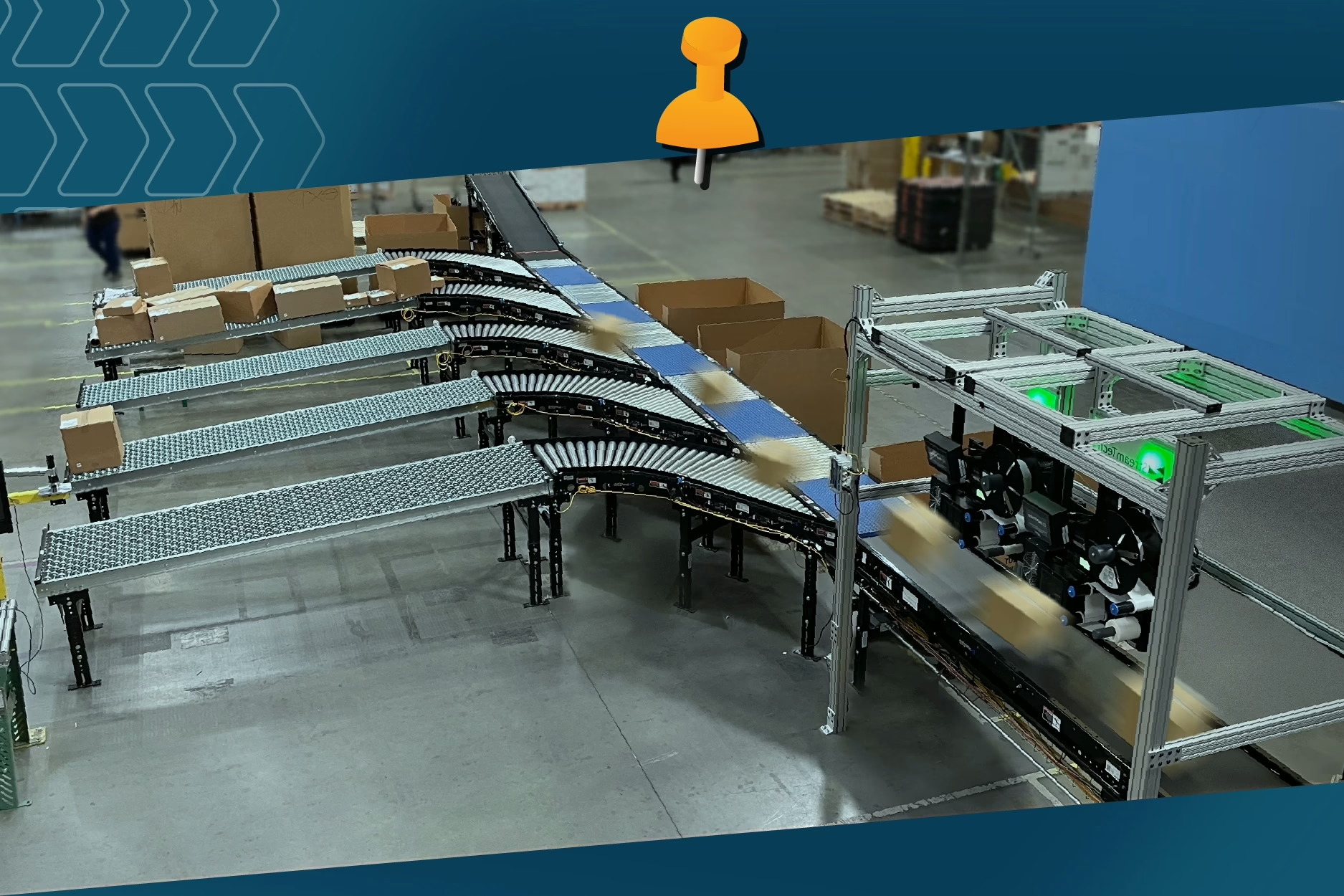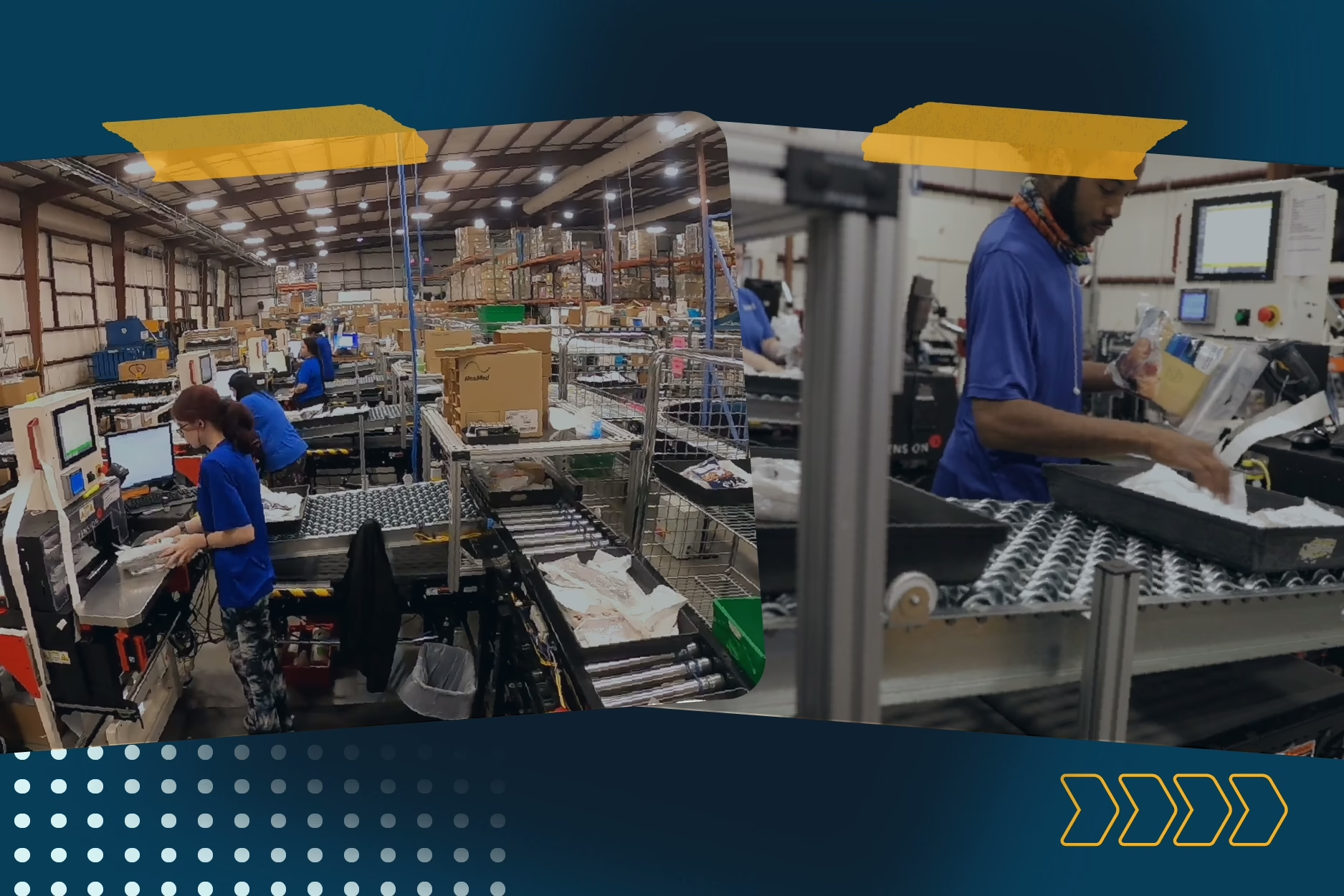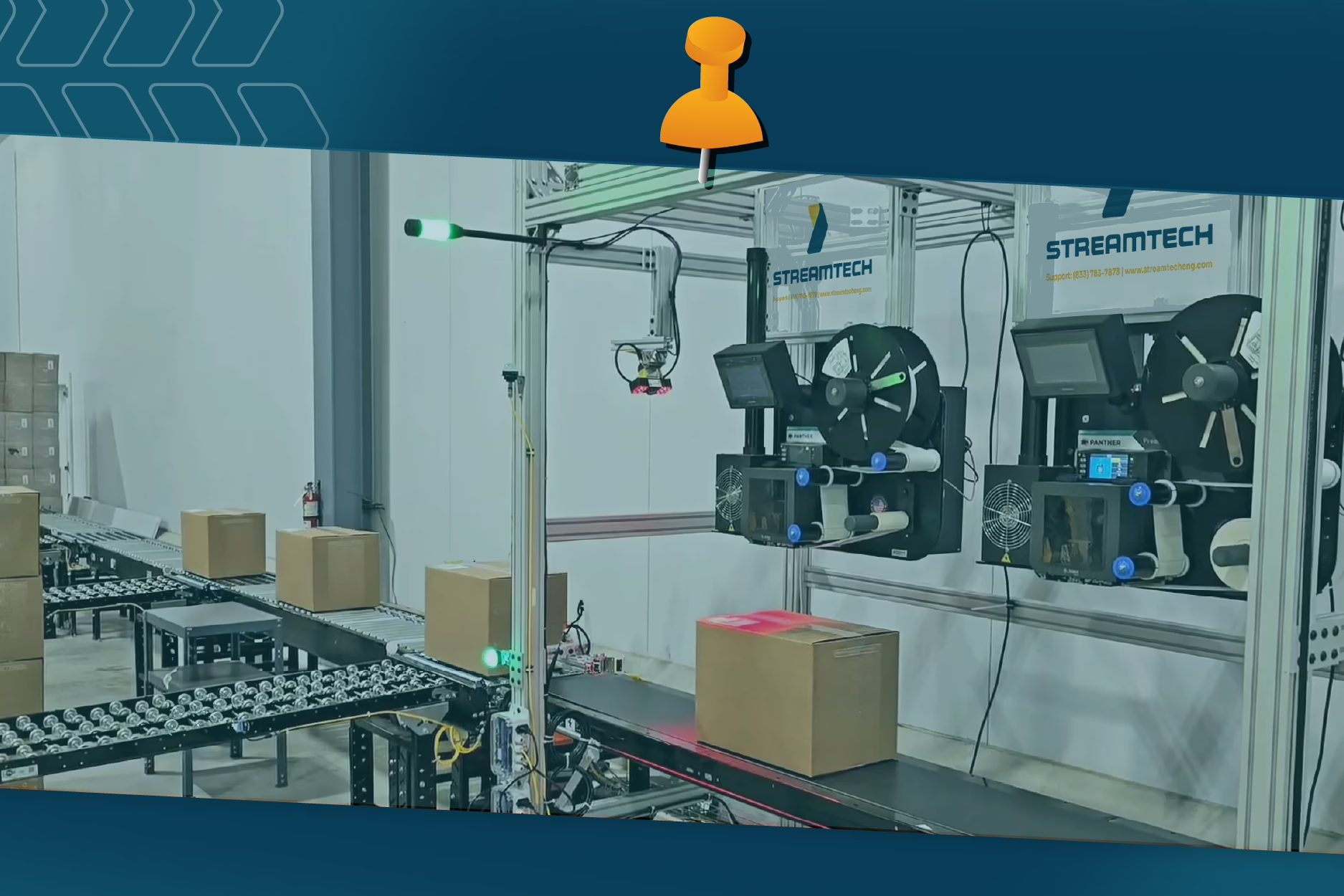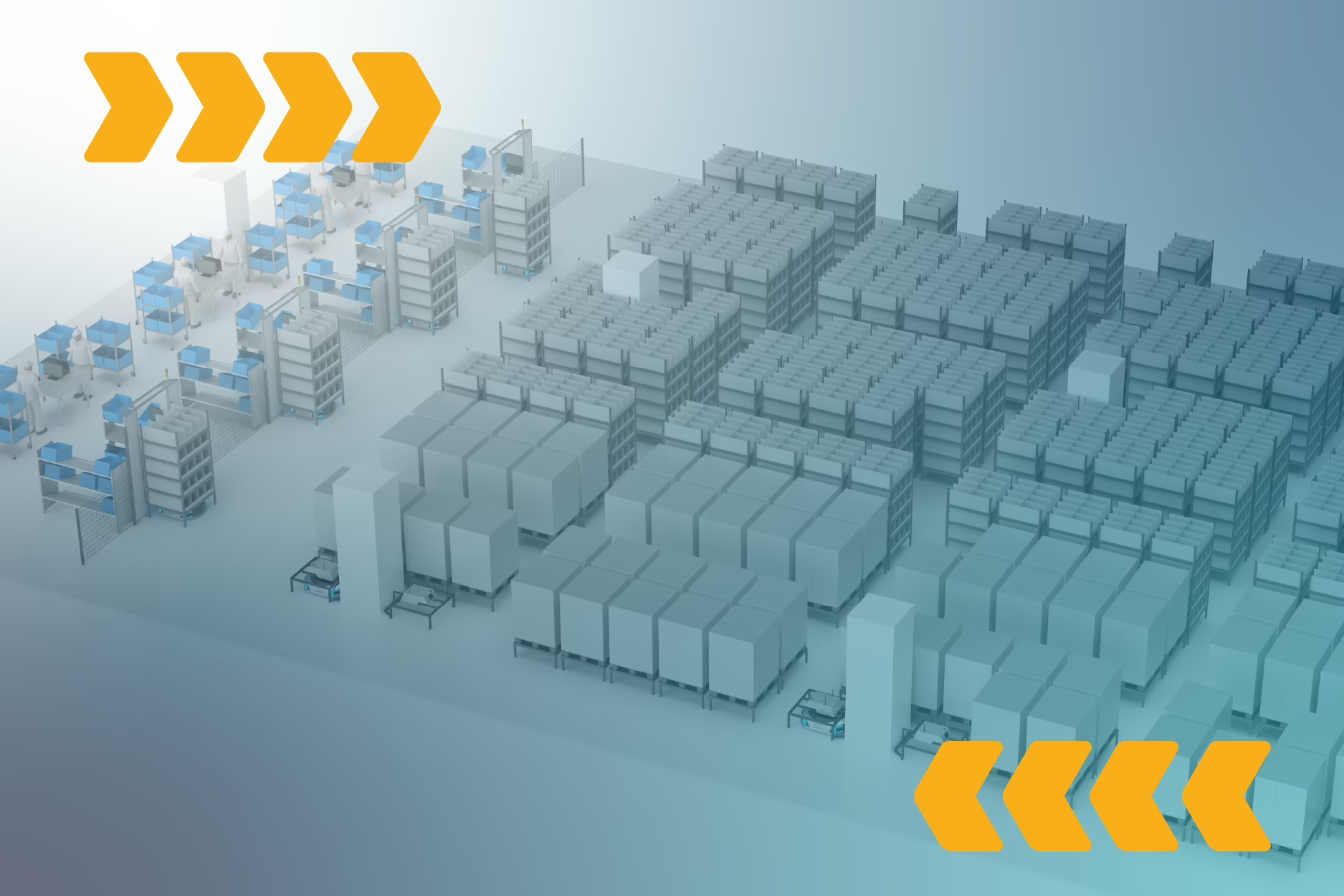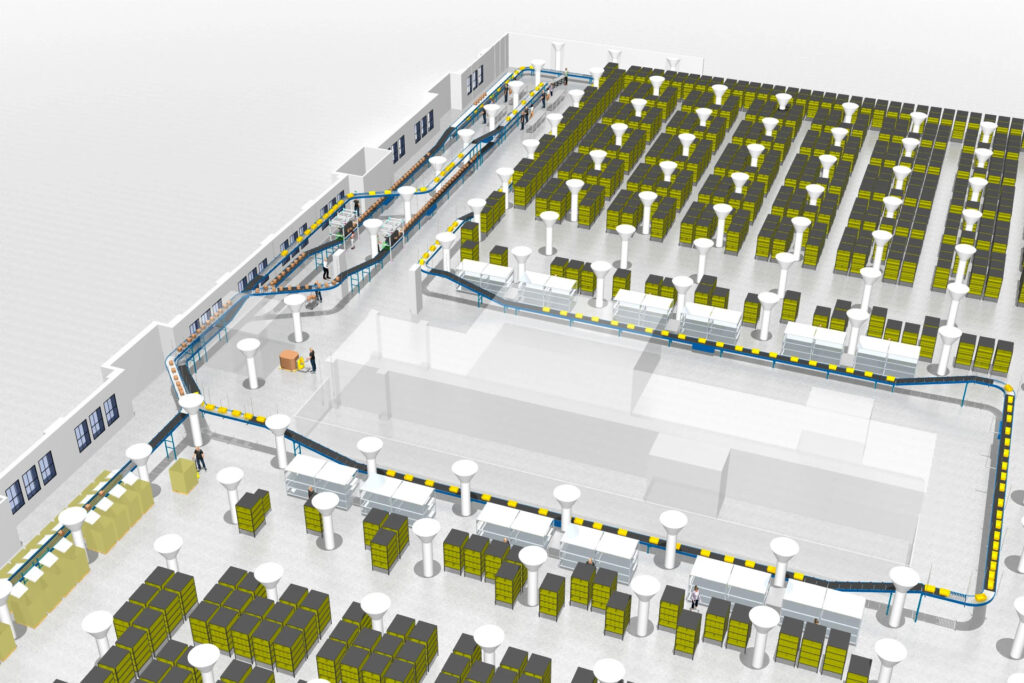Estimated reading time: 10 minutes
In the competitive logistics market, third party logistics (3PL) providers face the constant challenge of meeting their customer SLA’s (Service Level Agreements), while adding new clients to grow their business, enhancing efficiency and managing costs, and improving service quality. With supply chain pressures, it’s a lot to navigate. The industry’s fierce competition demands that they not only meet but exceed expectations in cost reduction and client satisfaction.
As challenges in the industry evolve, automation has become a crucial tool. It enables 3PLs to improve operational capabilities by streamlining processes, reducing errors, and freeing up resources for strategic initiatives. In this article, we will walk through the fulfillment process, from picking to shipping, providing practical ways that automation can help address these challenges.
Overcoming Implementation Challenges
Implementing automation in third-party logistics (3PL) operations can transform your business, but it’s not without its challenges. Common hurdles such as high initial costs, the need for extensive training, and integration issues with existing systems often make 3PL providers hesitant. However, with the right strategies, these challenges can be effectively managed to ensure a smooth transition.
Initial Investment & ROI
The upfront investment required for automation technology can be substantial. To manage these costs, consider phased implementation strategies where automation is introduced in stages. This approach allows you to spread out expenses over time and evaluate the ROI at each stage before further investment.
Additionally, since the typical SLA is only a few years, we suggest keeping the automation to a practical, manageable level that can accommodate multiple clients and grow as your business does. Start with the mature technologies that have been tested in the market for many years, such as directed picking, conveyance, dimweight, print and apply labeling, and parcel sortation systems, for example. Each of these types of systems can be designed for a broad range of product types and sizes.
Learn More About Warehouse Automation ROI
Training Staff Effectively
Training is crucial to maximize the benefits of new automated systems. Start with comprehensive training programs that not only cover how to operate the new equipment but also explain its benefits and potential impact on workflows. Engaging your team early in the decision-making process can help them be an active participant in the transition. Consider appointing ‘automation champions’ within your team who can lead by example and assist their colleagues, thereby fostering a supportive learning environment.
Software Integration
Integrating new automated solutions with your existing warehouse management system (WMS) or other operational platforms can be complex. This is especially important for 3PL companies who also have to provide real time data feedback to each of their customers. By partnering with an integrator such as StreamTech Engineering, you’ll receive both hardware and software integration support. Our dedicated software team specializes in integrating automation software with your database(s). A step-by-step integration plan, including parallel tests to minimize disruptions, ensures a smoother transition.
StreamTech Engineering has developed a robust WCS software platform that integrates with the many WMS/TMS systems available. We offer a variety of standard interface options such as API connections, shared directories and stored procedures to implement these integrations.
Making the software connection to your business planning tools enables a deep integration that gives you highly accurate data and allows you to be transparent with your clients as to when and how their products are fulfilled.
The Role of Fulfillment Automation in 3PL Operations
Integrating fulfillment automation into 3PL warehouse systems brings a multitude of benefits, essential for maintaining a competitive edge in today’s logistics market: Yet long-term results depend on an operational excellence framework that sustains efficiency, accuracy, and service consistency across sites.
Cost Efficiency
Automation significantly reduces labor costs by performing repetitive tasks more quickly and efficiently than human workers. By minimizing human involvement, we reduce the costs of processing each package.
Automation also plays an active role in reducing shipping costs, by reducing the physical package through cartonization and packaging equipment, as well as rate shopping by carrier, service level and by dimensional weight.
Accuracy
Automated systems are designed to execute tasks with high precision. In the context of a 3PL warehouse, this means increased accuracy in picking and packing operations, leading to fewer errors in order shipments. This precision ensures that the right products reach the right customers in the right condition, enhancing client satisfaction and reducing returns. Accuracy is especially important as it will be spelled out in the 3PL’s SLA and could impact the relationship with the retailer or manufacturer for future business.
Scalability
Automation enables 3PL providers to scale operations flexibly and rapidly. As business volume increases, automated systems can handle the added workload without the need for proportional increases in staff or manual processing capacity. This scalability is crucial for accommodating seasonal fluctuations and supporting business growth without sacrificing performance or customer service.
Speeding Up the Picking Process With Automation
Automation technologies like Pick-to-Light can be an excellent practical, affordable way for 3PL companies to speed up the picking process. Here’s how these innovative systems work and how they improve efficiency:
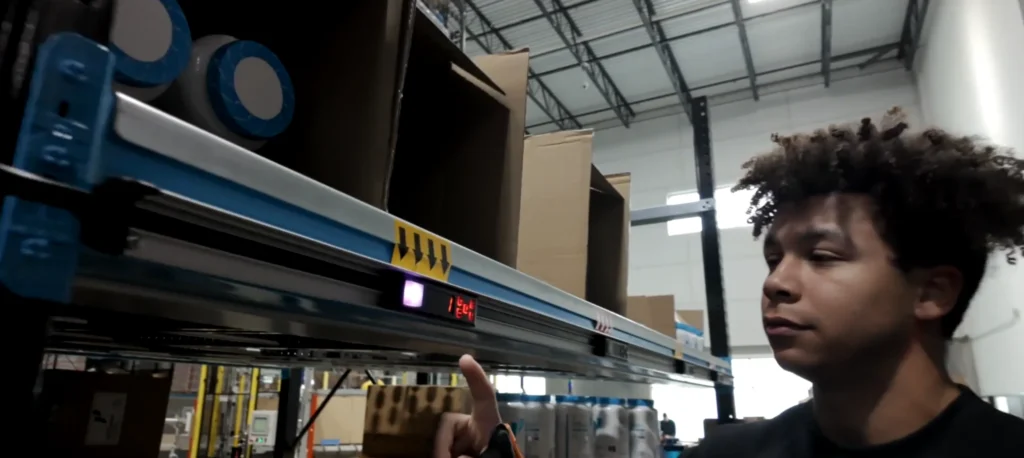
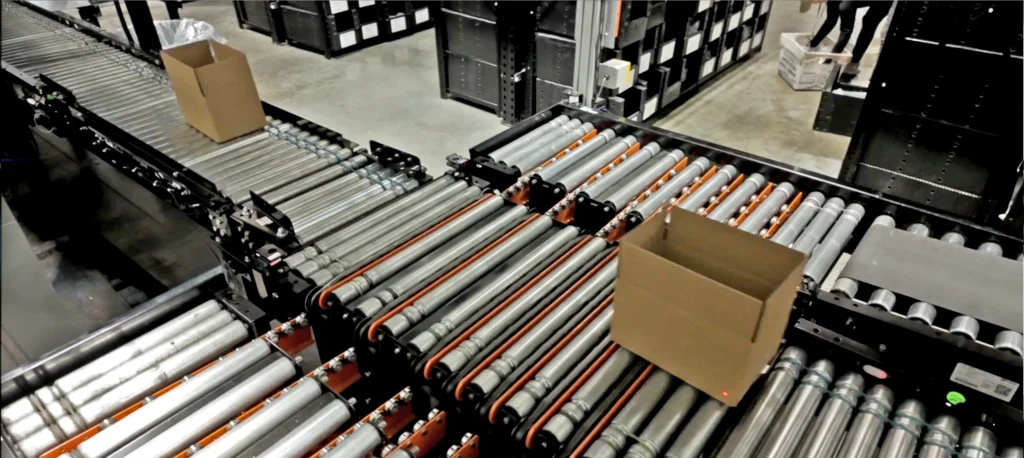
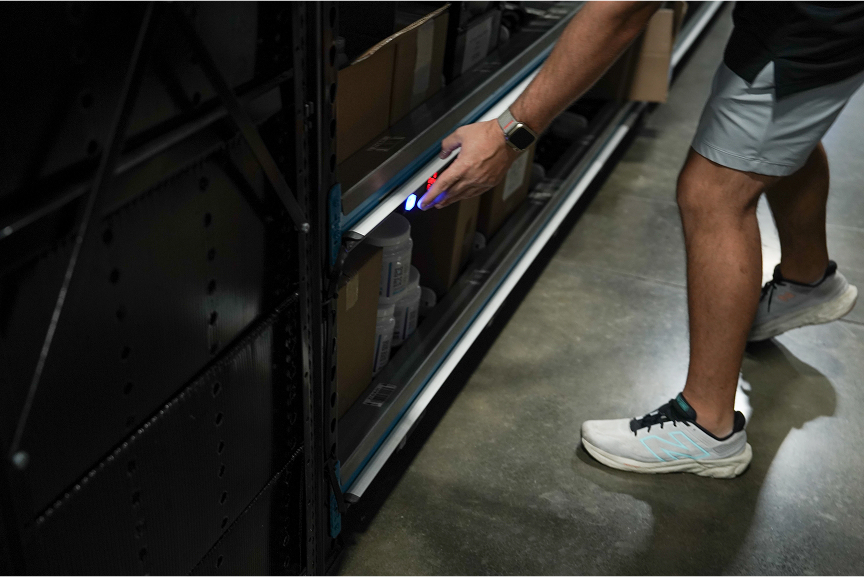
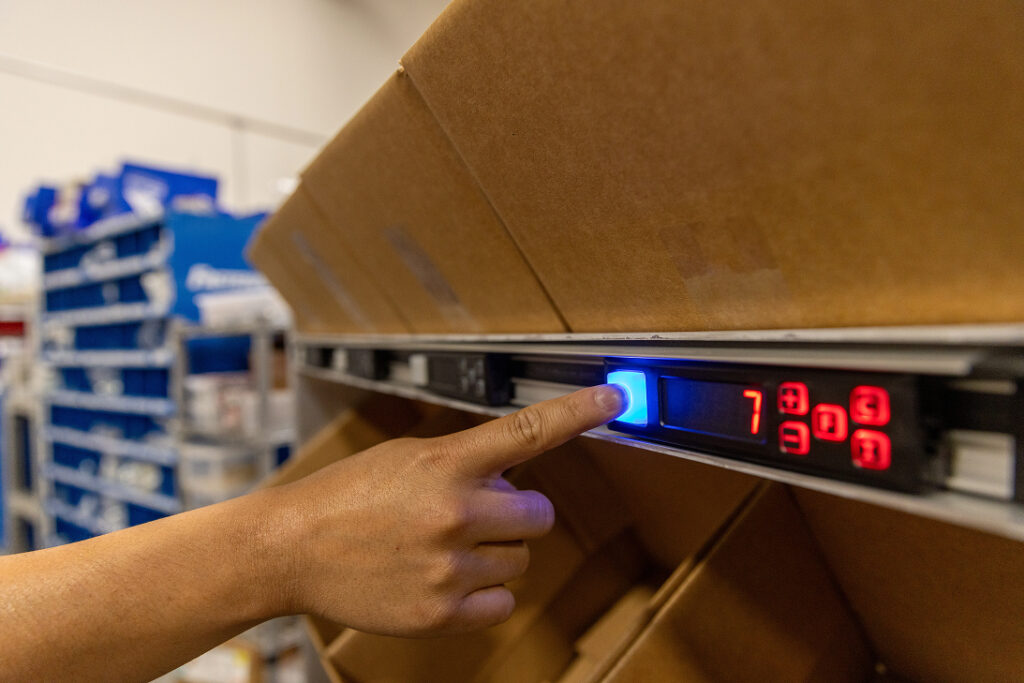
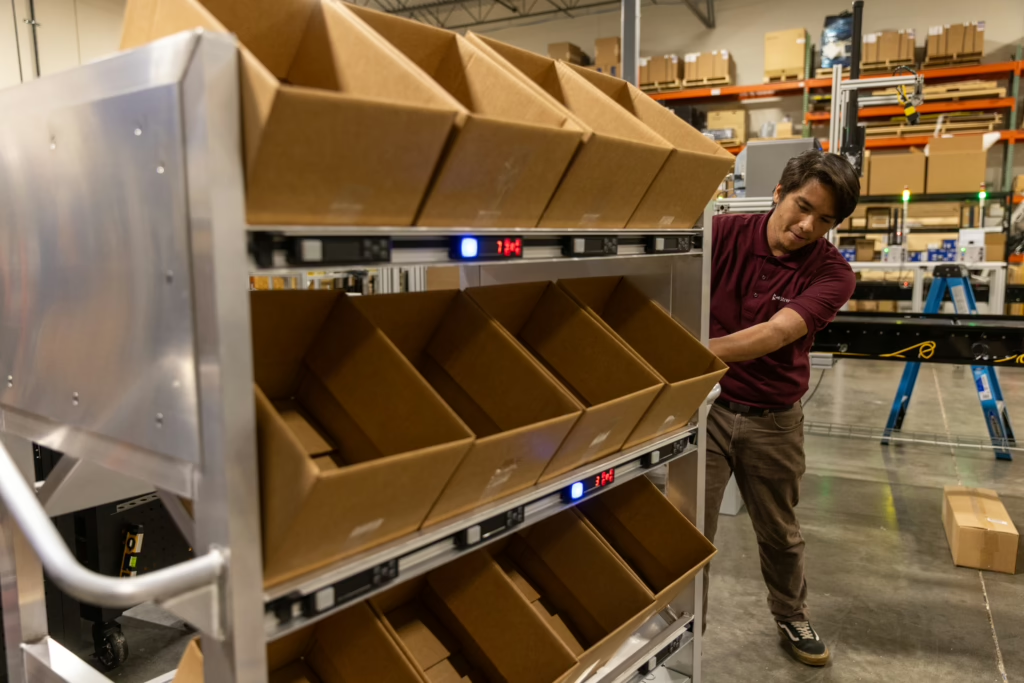
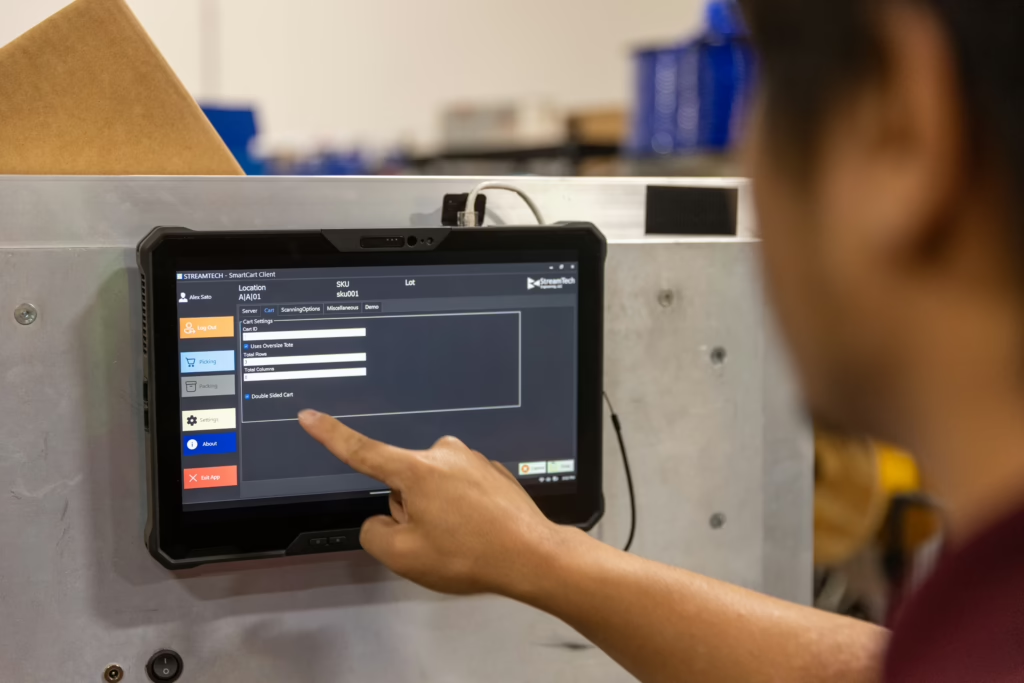
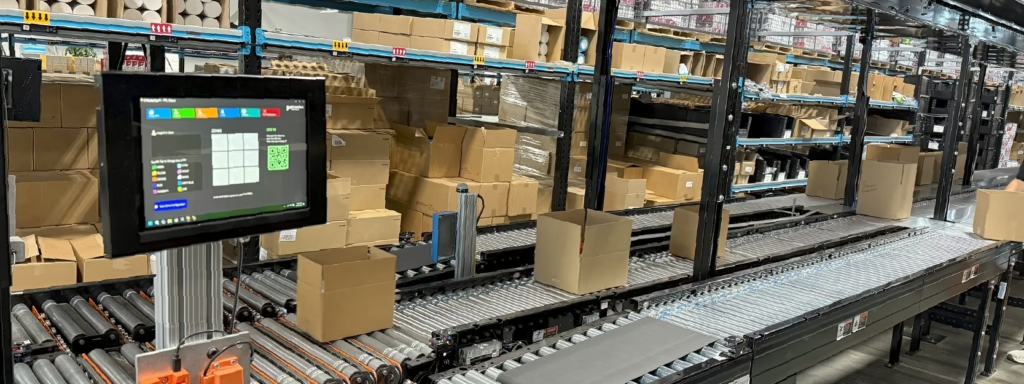
Pick-to-Light Systems
This technology uses lights and alphanumeric displays at storage locations to guide warehouse workers to the correct items quickly. When an order is processed, specific bins light up, showing the exact location of the item to be picked, along with the quantity needed. The worker then confirms the pick by pressing a button, which turns off the light, signaling that the task is complete.
This method drastically reduces the time spent searching for items and minimizes picking errors, leading to a streamlined operation that boosts productivity and reduces costs associated with mis-picks. Learn more about how pick to light can impact your operation.
Automating the Pack Process
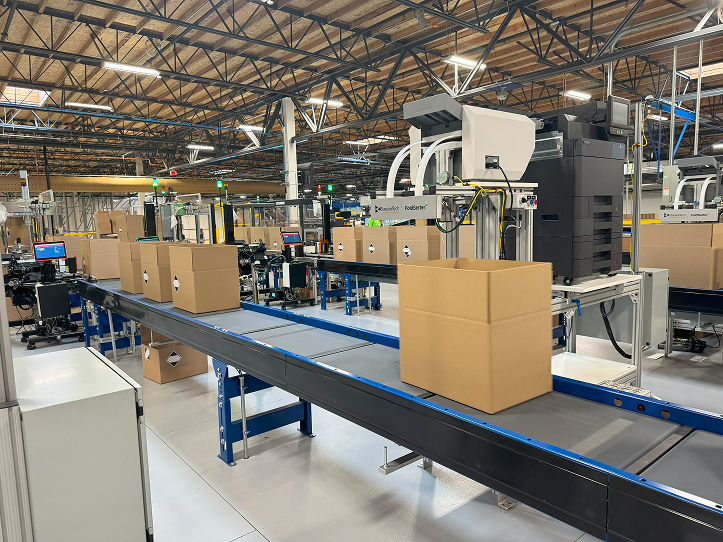
Document automation solutions, such as the Foldserter™ are game-changers for 3PLs. These systems help streamline your process and dramatically increase throughput.
This advanced system is designed to automate the insertion of paperwork into packages, a task that traditionally takes up considerable time and is prone to errors. The FoldSerter™ identifies each package, prints and folds the necessary documents—whether they are pack slips, invoices, or promotional materials—and verifies each document against the package in real time before inserting it. This automated process not only ensures accuracy but also significantly speeds up the packing line. By eliminating manual document handling, the FoldSerter™ reduces labor costs and increases the number of packages that can be processed per hour.
Minimize Disruption, Maximize Efficiency
By partnering with StreamTech and investing in automated packing solutions, you can expect a smoother, faster, and more reliable packing process.
Automating the Shipping & Sortation Processes:
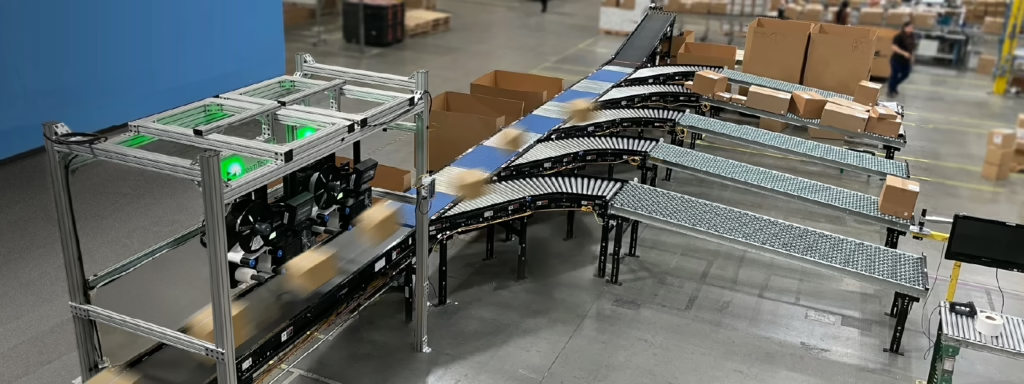
Automated weigh, dimension, and print apply labeling systems are integral components of modern 3Pl fulfillment automation. These systems are also referred to as SLAM (Scan, Label Apply and Manifest) systems. These systems streamline the packaging process by accurately measuring the weight and dimensions of each item or package as it moves along the conveyor belt. This data is then used to generate precise shipping labels, ensuring that each package is correctly classified and billed according to carrier requirements. By automating this process, companies can significantly reduce the risk of human error, improve operational efficiency, and accelerate the speed at which orders are processed and shipped. This is particularly crucial in high-volume fulfillment centers, where the demand for rapid and accurate order processing is paramount.
In addition to improving accuracy and speed, automated weigh, dimension, and print apply labeling systems enhance traceability and data integration within the supply chain. The data collected is often integrated with warehouse management systems (WMS) and enterprise resource planning (ERP) systems, allowing for real-time tracking and visibility of each package. This integration helps optimize shipping costs and improve inventory management. Automated labeling also ensures compliance with carrier and regulatory standards, reducing the likelihood of shipping delays or penalties. These systems play a crucial role in making fulfillment operations more efficient and reliable.
Developing an effective parcel sortation system is crucial for optimizing logistics and meeting customer demands. Key applications include order consolidation, segregation, shipping lane allocation, routing, product sequencing, returns processing, load balancing, and parcel error diversion. Understanding package profiles, including size, weight, and fragility, is essential for selecting the right sortation technology. Effective systems also incorporate real-time monitoring, troubleshooting protocols, backup systems, and clear communication channels to address delays and ensure smooth operations. Additionally, scalability and adaptability to future needs are vital for long-term success.
Successful Implementation of 3PL Fulfillment Automation
3PL Fulfillment Automation Case Study
DCL Logistics is a third-party logistics provider offering fulfillment, kitting, testing, assembly, and customer service across various industries like consumer electronics and health and beauty. They excel in adapting to fluctuating order volumes during peak seasons, ensuring timely and accurate deliveries. With StreamTech’s automation technology, DCL can quickly adjust their fulfillment lines and sortation systems to meet carrier cutoffs. This flexibility helps innovative brands like GoPro and Magic Spoon receive customized, high-quality fulfillment solutions, making DCL a standout in the logistics industry.
Read the full case study here.
Streamline with StreamTech: Expert Automation Solutions for 3PL Providers
At StreamTech, we understand the complexities and challenges of integrating fulfillment automation into your 3PL operations. You don’t have to navigate this transformation alone. Partner with us, a provider deeply rooted in the logistics industry, and benefit from our comprehensive support and expertise.
Our team is dedicated to ensuring your automation integration is seamless and aligned with your specific operational needs, providing ongoing support post-implementation to troubleshoot and refine your systems. Embrace the future of logistics and let us help you enhance your operational efficiency, accuracy, and scalability. Reach out today to learn how a partnership with StreamTech can transform your 3PL operations.
